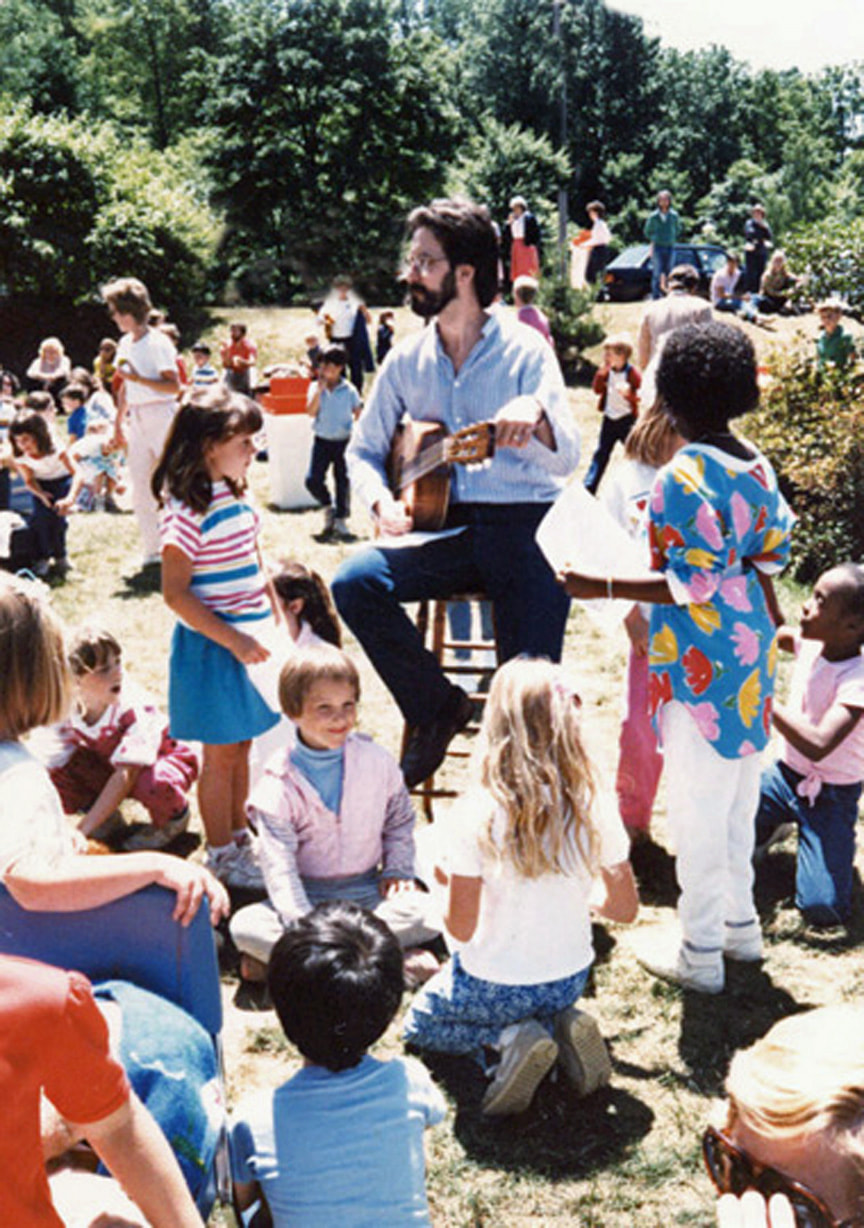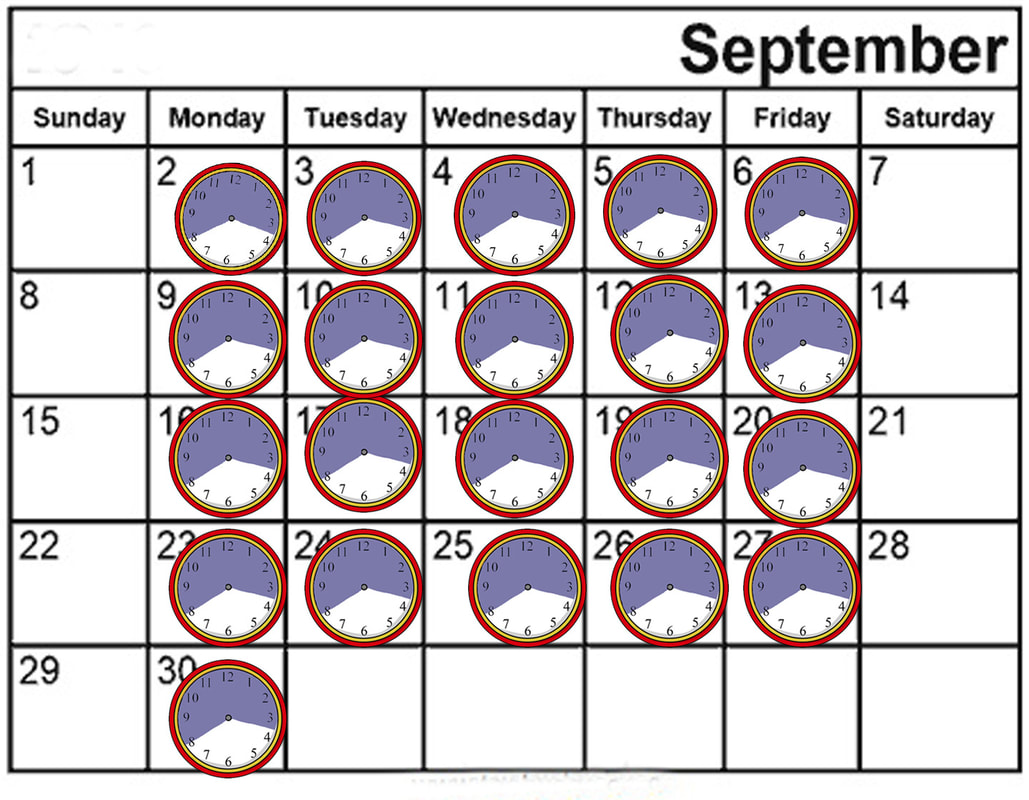Within several days, I knew I had a problem. I was a new teacher with no classroom experience and several classes of students who deeply missed their old teacher who left without warning. If I didn’t find a way to help make this situation better for both them and me, the school student community would be emotionally hamstrung and never move forward.
I came up with a plan that might mitigate their feelings.
Speaking to them as candidly as possible, I told them that I knew how much they missed their old music teacher. I shared that I missed her too. The truth was I really did miss her because I wished she could have said some words of guidance to them to get them through this emotional blockage.
I had a suggestion for the students. “How about if we write a letter to her and tell her how much we miss her. We could do this together.”
(Notice the use of "we", not "you")
They all nodded yes.
“How about if we draw some pictures of us to put in the card, pictures of us in music class doing the songs that we did the other day?”
Bigger smiles, bigger positive head nods.
“Hey, I’ve got an even better idea! How about if we make a tape of us singing her favorite songs and we send it to her?”
Now they were jumping up and down eager to sing for me, eager to be the best students they could be.
Lesson learned: genuflect at the altar of the person you follow.
As the year progressed, we were working together and developed synergy. I started writing music for the kids to sing, silly songs, and songs that allow them to emotionally share how they really felt at times.
I came up with a plan that might mitigate their feelings.
Speaking to them as candidly as possible, I told them that I knew how much they missed their old music teacher. I shared that I missed her too. The truth was I really did miss her because I wished she could have said some words of guidance to them to get them through this emotional blockage.
I had a suggestion for the students. “How about if we write a letter to her and tell her how much we miss her. We could do this together.”
(Notice the use of "we", not "you")
They all nodded yes.
“How about if we draw some pictures of us to put in the card, pictures of us in music class doing the songs that we did the other day?”
Bigger smiles, bigger positive head nods.
“Hey, I’ve got an even better idea! How about if we make a tape of us singing her favorite songs and we send it to her?”
Now they were jumping up and down eager to sing for me, eager to be the best students they could be.
Lesson learned: genuflect at the altar of the person you follow.
As the year progressed, we were working together and developed synergy. I started writing music for the kids to sing, silly songs, and songs that allow them to emotionally share how they really felt at times.
I still didn't feel like I was hitting the mark as a music teacher even though I was being touted as the wunderkind by parents and other teachers.
My classroom management was erratic. Some days it was as if a riot was going on. I was always hoping someone wasn't going to get hit by something or fall or get injured. I had no real system for creating lesson plans. While I knew what was important to me as a mature musician, I was looking at pre-school children trying to fathom what was important for me for them. As an only child, I spent no time with kids that age for the most part and next to no time observing young children in my college studies.
My principal hid from me. She wouldn't give me any advice. Wirh no real mentors in the building. I felt was different from all the other staff members. It was more like I was just seen as a different breed of cat and they were going to let me do my own thing.
It got so bad with the principal evading me that I would go outside the school and bang on her window, saying, “I know you're in there, I need help”. The rustling window blinds blinds was the only response.
But my department head and parents appreciated what I was accomplishing. They noticed that I had an affinity for working with the kids with behavior issues. Little did they know I was once one of those kids.
By the middle of my second year, I was ready to bail on teaching and try graduate school with the goal of becoming a college teacher. I was accepted in Temple University master’s composition program headed by American composer Clifford Taylor.
During my second year, my principal decided not to return for the next term. When I met with her the week before she resigned, I turned in my resignation informing her that I wouldn't be returning for a third year.
As I started dealing with the fine print of a master's-level degree, nothing was coming together as far as college scheduling. I decided a third year teaching was more secure than grad school. I resolved I would attend grad school part time and continue teaching at the elementary school full time.
The morning after I had made my decision to stay, I called my Headmaster and department head, arranged to meet with them, and planned to beg to have my resignation letter back and continue to teach next year.
They were ecstatic with my change of heart.
“Of course you can stay!” A huge weight was lifted off my bank account.
I literally ran to lower school to tell my co-workers that I was staying for a third year.
“Really?”, a voice said behind me.
“Let me introduce myself. My name is Max Harrell and I am the new principal and I believe I have something to say about this decision”. The wind was knocked out of my checking account.
Lucky for me, Max observed me teach that day and had the kindest and most cogent observations and advice I had ever received in my college or professional career. He epitomized the concept of a teacher’s teacher. Even after taping myself dozens of times and analyzing my work, he identified some bad teaching habits that I had failed to see. He was candid about my weaknesses but rarely suggested solutions. Instead, he often asked open, leading questions, almost speaking in in zen koans at times. He made me think in ways no teacher had ever expected me to do.
In the five years I worked with Max, he made me an incredibly stronger, more confident teacher.
Despite my improved teaching skills, I was still financially floundering. I'll address that in “The First Few 7.5 Hours – Part Three.
My classroom management was erratic. Some days it was as if a riot was going on. I was always hoping someone wasn't going to get hit by something or fall or get injured. I had no real system for creating lesson plans. While I knew what was important to me as a mature musician, I was looking at pre-school children trying to fathom what was important for me for them. As an only child, I spent no time with kids that age for the most part and next to no time observing young children in my college studies.
My principal hid from me. She wouldn't give me any advice. Wirh no real mentors in the building. I felt was different from all the other staff members. It was more like I was just seen as a different breed of cat and they were going to let me do my own thing.
It got so bad with the principal evading me that I would go outside the school and bang on her window, saying, “I know you're in there, I need help”. The rustling window blinds blinds was the only response.
But my department head and parents appreciated what I was accomplishing. They noticed that I had an affinity for working with the kids with behavior issues. Little did they know I was once one of those kids.
By the middle of my second year, I was ready to bail on teaching and try graduate school with the goal of becoming a college teacher. I was accepted in Temple University master’s composition program headed by American composer Clifford Taylor.
During my second year, my principal decided not to return for the next term. When I met with her the week before she resigned, I turned in my resignation informing her that I wouldn't be returning for a third year.
As I started dealing with the fine print of a master's-level degree, nothing was coming together as far as college scheduling. I decided a third year teaching was more secure than grad school. I resolved I would attend grad school part time and continue teaching at the elementary school full time.
The morning after I had made my decision to stay, I called my Headmaster and department head, arranged to meet with them, and planned to beg to have my resignation letter back and continue to teach next year.
They were ecstatic with my change of heart.
“Of course you can stay!” A huge weight was lifted off my bank account.
I literally ran to lower school to tell my co-workers that I was staying for a third year.
“Really?”, a voice said behind me.
“Let me introduce myself. My name is Max Harrell and I am the new principal and I believe I have something to say about this decision”. The wind was knocked out of my checking account.
Lucky for me, Max observed me teach that day and had the kindest and most cogent observations and advice I had ever received in my college or professional career. He epitomized the concept of a teacher’s teacher. Even after taping myself dozens of times and analyzing my work, he identified some bad teaching habits that I had failed to see. He was candid about my weaknesses but rarely suggested solutions. Instead, he often asked open, leading questions, almost speaking in in zen koans at times. He made me think in ways no teacher had ever expected me to do.
In the five years I worked with Max, he made me an incredibly stronger, more confident teacher.
Despite my improved teaching skills, I was still financially floundering. I'll address that in “The First Few 7.5 Hours – Part Three.


 RSS Feed
RSS Feed